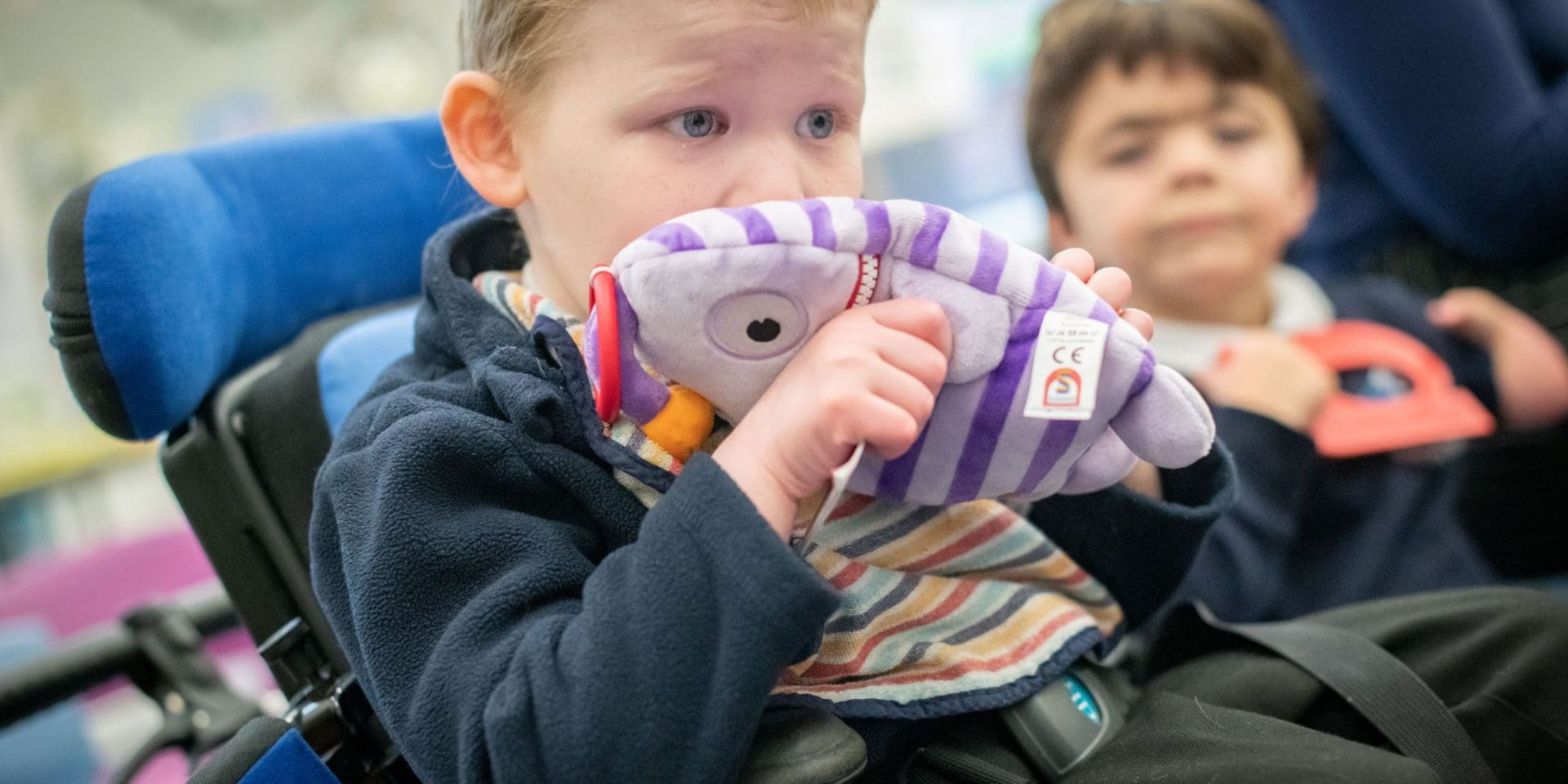Telling a child or young person that someone close to them has died is one of the most difficult things you will ever have to do. It’s natural to want to protect them from any pain and when your child has special educational needs or disabilities you may wonder whether they will be able to comprehend what has happened.
The truth is that, regardless of their developmental stage, all children will experience a loss of some kind and will need support to understand what has happened and what changes they might expect in the future.
There are a few extra things to consider when telling a child with special educational needs and disabilities that someone has died – such as the child’s method of communication and their developmental stage rather than chronological age – but our advice is broadly the same. Put simply, this is:
- Consider the child’s functional age as this will determine their level of understanding around death
- Use clear, simple language appropriate for their developmental stage
- Use words like ‘death’ and ‘died’ rather than euphemisms like ‘passed away’ as these can be confusing for children
- Give information in small chunks
- Choose a calm place to tell them about the death
- Be prepared for questions and answer them honestly
- Repeat information and explanations to make sure they have understood
What does your child understand about death?
When talking to a child with SEND about the death of someone close, one of the most important factors to consider is the child’s functional age rather than their chronological age. This will help to determine what their level of understanding is around death and what language you should use. However, it is also important to note that a child with SEND might also present with a spiked developmental profile, meaning that they may be more developed in some areas and less so in others. If you aren’t sure, speak to other people who are supporting the child and together you can establish what they may be able to understand.
Use clear and simple language
Adults can sometimes feel inclined to protect young people from the harsh reality of death. It is natural to feel this way, especially when we think about all the other difficulties faced by children with SEND. However, it is crucial that adults supporting young people use language that is clear and understandable to children. Use words such as ‘death’ and ‘died’ rather than euphemisms such as ‘passed away’ and ‘lost’. These accurate words make it clearer and easier to understand.
Give information in small chunks
It can feel overwhelming to think about all the information you might need to give a child and equally it can be difficult for a child to comprehend that information in one go. It can be helpful for children with special educational needs and disabilities to have details delivered in smaller chunks and given over a period of time. Imagine giving this information as a jigsaw. Initially, a child may only need a four-piece jigsaw – Mummy has died and she cannot come back – but over time, they can manage an eight-piece or 12-piece jigsaw. What information you give them will be determined by their level of understanding. Give information slowly and stop regularly after sentences so that the child has time to process what you are telling them.
Choose a calm place to tell them
Most children will always remember where they were and who told them that someone has died. For children with SEND, it is important that you consider the environment that you are sharing this information. Chose a place that is calm and relaxing and sit alongside them rather than in front of them as you share the difficult news. Sometimes, people feel able to open up more if they don’t have to look someone in the eye and you can still be available to offer comfort in the form of reassuring touches if appropriate.
Answer questions honestly
If children ask questions, it’s important to answer them as honestly as possible. If you tell half-truths or lies now, children may find out the truth later and this can cause feelings of distrust. Of course, sometimes young people ask questions we do not have the answers for. It’s ok to say to them “I don’t know the answer to that question, but I will try and find out for you” and it’s important that you follow this up. Children have a way of asking questions that adults haven’t even thought about, such as “what temperature does a body get cremated at?” However small and insignificant the questions might seem to you, these will be incredibly important to the child and will play a part in their processing and understanding of what has happened.
Be prepared to repeat information
For children with SEND, it is possible that they will need the information reiterated many times. If you are grieving yourself then it can feel a huge task to continually go over what happened so it is important that there are several people who can do this. Make sure that you are all sharing the same information to help with consistency. It can feel tempting to assume that if a child has stopped asking questions then this means that they have fully understood, but it’s best not to make assumptions – you may need to instigate the reiteration of what happened.
Use the child’s preferred method of communication
Don’t forget to use the child’s method of communication, such as sign language, symbols and PODD books. These tools can also help support children to process and understand information. When we are told difficult news this can impact our ability to use certain skills, such as communication, so having supporting tools may be useful even if a child has verbal skills.
How to get specialist support
Our team can offer more advice, information, resources and support to help you support a grieving child or young person. You can call us on 08088 020 021 (8am-8pm, weekdays), email us on ask@winstonswish.org or use our live chat (8am-8pm, weekdays).
Our Winston’s Wish Crisis Messenger is available 24/7 for urgent support in a crisis. Text WW to 85258.
Other resources you might find helpful

We All Grieve
Our specialist book offers practical advice to help adults supporting children and young people with SEND after the death of a loved one. Includes information, practical suggestions and activities.

How to use a memory box
Step-by-step instructions on how to use a memory box to keep pictures, cards and treasured items and help bereaved children maintain memories of the person who has died.


